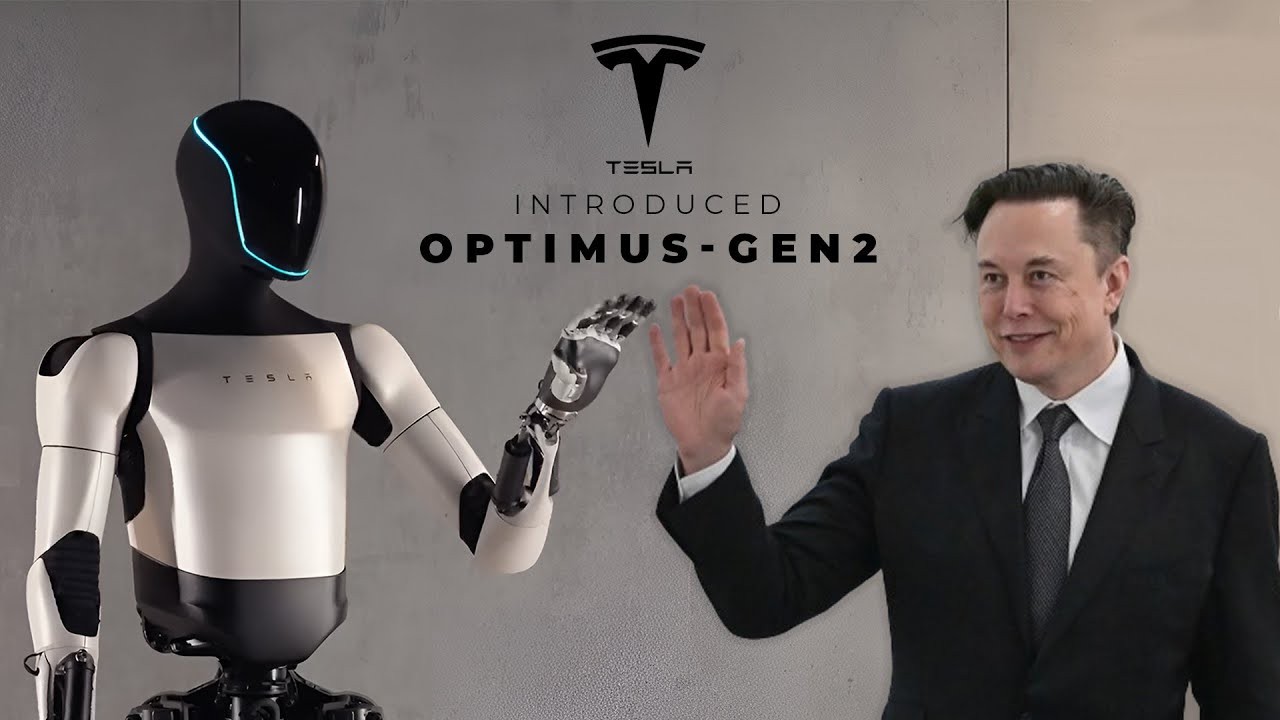Your cart is currently empty!

Tesla to Launch Groundbreaking Mass Production of Optimus Robot in 2025: Transforming Robotics Forever
Tesla is poised to transform the robotics industry with its groundbreaking humanoid robot, Optimus. The company has announced plans to begin mass production of Optimus in 2025, marking a significant step forward in the integration of advanced robotics into everyday life. Initially, Tesla intends to produce several thousand units, targeting a range of applications in…
Tesla is poised to transform the robotics industry with its groundbreaking humanoid robot, Optimus. The company has announced plans to begin mass production of Optimus in 2025, marking a significant step forward in the integration of advanced robotics into everyday life. Initially, Tesla intends to produce several thousand units, targeting a range of applications in industries such as manufacturing, logistics, and even household assistance.
As the technology matures and production processes become more efficient, Tesla aims to dramatically increase output, with a goal of scaling up production to an impressive 500,000 robots annually by 2029. This ambitious trajectory underscores Tesla’s commitment to not only leading the development of humanoid robotics but also making such technology accessible and impactful across a wide array of sectors.
Table of Contents
Manufacturing Efficiency and Cost Reduction
Leveraging its expertise in manufacturing, Tesla aims to rapidly decrease production costs for Optimus. By sharing components with its electric vehicles such as batteries, autonomous computing systems, motors, and sensors the company can streamline production and achieve economies of scale. This approach not only accelerates the manufacturing process but also ensures consistency and reliability across its product lines.
Resource Efficiency
Optimus robots require significantly fewer materials compared to Tesla’s vehicles. Specifically, the production of an Optimus robot demands 97.2% fewer materials than that of a Tesla Model Y. This substantial reduction underscores Tesla’s commitment to resource efficiency and sustainable manufacturing practices.
Technological Advancements
Equipped with advanced artificial intelligence, computer vision, and neural networks, Optimus is designed to learn from its environment and adapt seamlessly to human-centric spaces. These capabilities position the robot to assist in various sectors, including manufacturing and home assistance, potentially reshaping labor dynamics by enhancing efficiency and safety.
Market Potential and Future Outlook
Analysts project a promising future for Tesla’s robotics venture. Edison Yu of Deutsche Bank estimates that Tesla could sell approximately 200,000 robots annually by 2035, valuing the business at $70 billion. Elon Musk envisions an even more aggressive expansion, suggesting a future where the robot-to-human ratio could be three to four to one. The rapid advancements in AI and robotics indicate that Tesla’s robot business may evolve faster and become more substantial than initially anticipated.
Ethical and Societal Considerations
As Tesla advances toward large-scale production of humanoid robots, discussions around ethics, job displacement, and societal impacts are becoming increasingly pertinent. The integration of robots like Optimus into daily life and industrial practices necessitates careful consideration of these factors to ensure a harmonious transition into a more automated future.
FAQs
1. What is Tesla Optimus?
Tesla Optimus is a humanoid robot designed by Tesla to assist in various tasks, including manufacturing, logistics, and home assistance. It utilizes Tesla’s advanced AI and robotics technologies.
2. When will Tesla start producing these robots?
Tesla plans to begin mass production of Optimus robots in 2025.
3. How many robots does Tesla plan to produce?
Tesla aims to produce several thousand robots initially, scaling up to 500,000 units annually by 2029.
4. How is Tesla keeping production costs low for them?
Tesla is sharing components like batteries, motors, and sensors with its electric vehicles, reducing costs and achieving economies of scale.
5. What industries will benefit from Tesla Optimus?
Optimus has the potential to assist in manufacturing, logistics, healthcare, and home assistance, making it valuable across various sectors.
6. What are the ethical concerns surrounding Optimus?
Concerns include job displacement, societal impacts, and ethical use of AI. Tesla and regulators will need to address these issues as the robots become widely available.
Interesting Read: Apple TV: Apple Set to Launch HomePod Mini 2, tvOS Update, and Apple TV 4K in 2025 – Tech To Know


